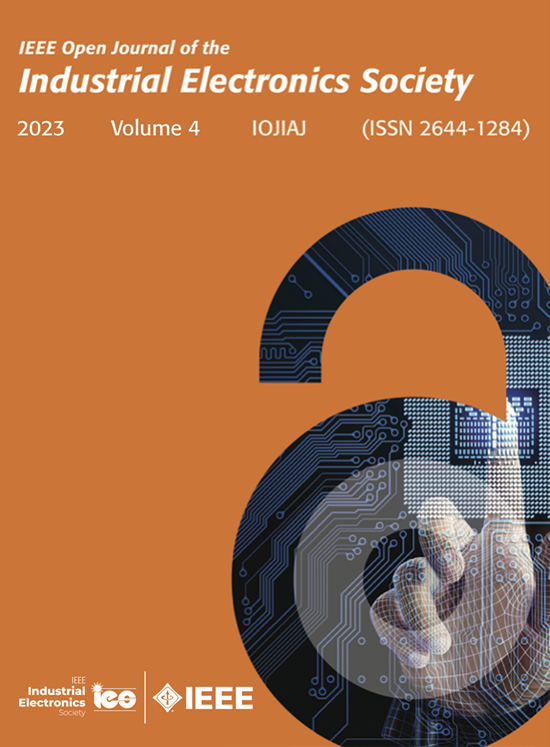Enhanced Inverse Model Predictive Control for EV Chargers: Solution for DC–DC Side
IF 4.3
Q1 ENGINEERING, ELECTRICAL & ELECTRONIC
IEEE Open Journal of the Industrial Electronics Society
Pub Date : 2025-03-24
DOI:10.1109/OJIES.2025.3553061
引用次数: 0
Abstract
This article presents an approach for enhancing the reliability and robustness of electric vehicle (EV) chargers, particularly the dc–dc side of the EV chargers, by using the inverse model predictive control (IMPC). IMPC, a recently introduced control method for power electronic converters, leverages the strengths of model predictive control (MPC), while minimizing its computational burden. IMPC excels in managing sophisticated and nonlinear systems, controlling multiple objectives, and adhering to various constraints. However, the effectiveness of conventional IMPC is heavily dependent on the accurate dynamic model of the power converter. This dependency makes IMPC susceptible to uncertainties and disturbances. To address this challenge, the proposed method employs an adaptive estimation strategy utilizing a recursive least square algorithm for online dynamic model estimation. This real-time estimated model enables IMPC to predict optimal switching states with improved reliability. The proposed control technique is designed to provide constant power, constant current, and constant voltage modes, with the ability to seamlessly transition between them. The efficacy of this technique is demonstrated through extensive simulations and experimental validation for a dual active bridge (DAB) converter. This adaptive method underscores the potential of IMPC for practical EV charging scenarios, ensuring reliable and high-performance charging.电动汽车充电器的增强逆模型预测控制:DC-DC侧的解决方案
本文提出了一种利用逆模型预测控制(IMPC)来提高电动汽车充电器的可靠性和鲁棒性的方法,特别是电动汽车充电器的dc-dc侧。IMPC是一种新的电力电子变流器控制方法,它利用了模型预测控制(MPC)的优点,同时最大限度地减少了计算量。IMPC擅长管理复杂的非线性系统,控制多个目标,并遵守各种约束。然而,传统IMPC的有效性在很大程度上取决于功率变换器的精确动态模型。这种依赖性使IMPC容易受到不确定性和干扰的影响。为了解决这一挑战,该方法采用了一种自适应估计策略,利用递归最小二乘算法进行在线动态模型估计。该实时估计模型使IMPC能够以更高的可靠性预测最优开关状态。所提出的控制技术旨在提供恒功率、恒电流和恒电压模式,并具有在它们之间无缝转换的能力。通过双有源桥(DAB)变换器的大量仿真和实验验证,证明了该技术的有效性。这种自适应方法强调了IMPC在实际电动汽车充电场景中的潜力,确保了可靠和高性能的充电。
本文章由计算机程序翻译,如有差异,请以英文原文为准。
求助全文
约1分钟内获得全文
求助全文
来源期刊

IEEE Open Journal of the Industrial Electronics Society
ENGINEERING, ELECTRICAL & ELECTRONIC-
CiteScore
10.80
自引率
2.40%
发文量
33
审稿时长
12 weeks
期刊介绍:
The IEEE Open Journal of the Industrial Electronics Society is dedicated to advancing information-intensive, knowledge-based automation, and digitalization, aiming to enhance various industrial and infrastructural ecosystems including energy, mobility, health, and home/building infrastructure. Encompassing a range of techniques leveraging data and information acquisition, analysis, manipulation, and distribution, the journal strives to achieve greater flexibility, efficiency, effectiveness, reliability, and security within digitalized and networked environments.
Our scope provides a platform for discourse and dissemination of the latest developments in numerous research and innovation areas. These include electrical components and systems, smart grids, industrial cyber-physical systems, motion control, robotics and mechatronics, sensors and actuators, factory and building communication and automation, industrial digitalization, flexible and reconfigurable manufacturing, assistant systems, industrial applications of artificial intelligence and data science, as well as the implementation of machine learning, artificial neural networks, and fuzzy logic. Additionally, we explore human factors in digitalized and networked ecosystems. Join us in exploring and shaping the future of industrial electronics and digitalization.
 求助内容:
求助内容: 应助结果提醒方式:
应助结果提醒方式:


